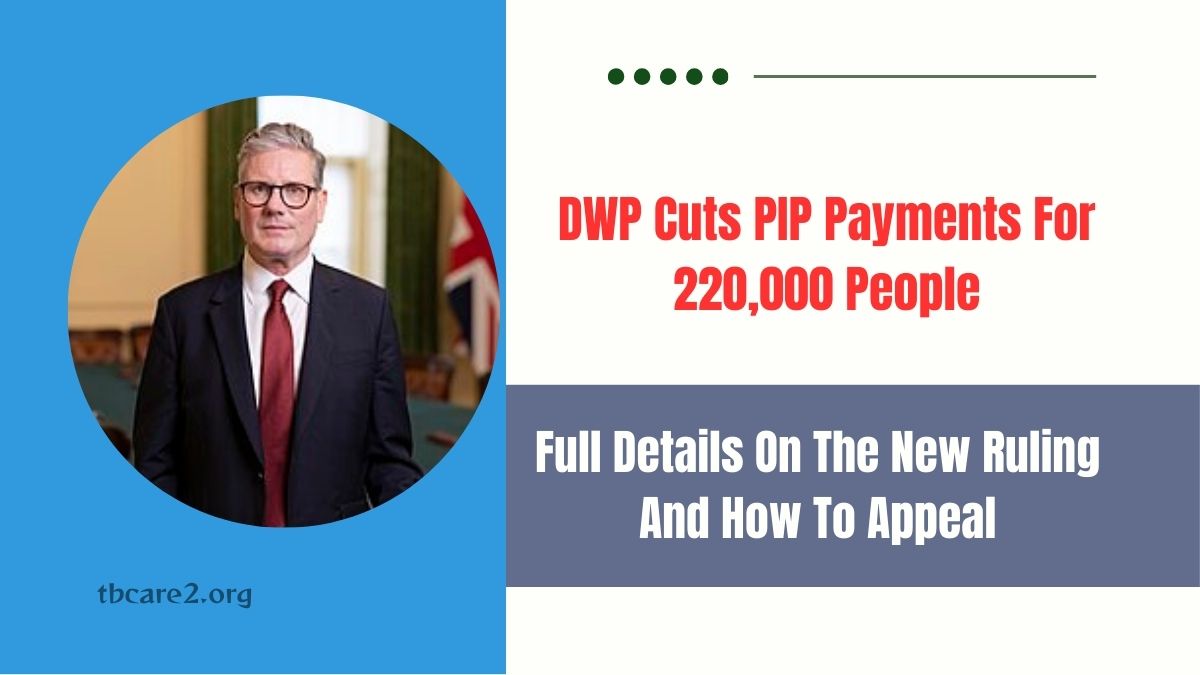The Department for Work and Pensions (DWP) has recently implemented a strict new ruling that has led to the removal of Personal Independence Payments (PIP) for 220,000 people across the UK.
This decision follows reassessments conducted between February 2019 and January 2024. The changes have major implications for people who rely on PIP for financial support related to mobility or daily living needs.
In this article, we’ll break down the specifics of the new ruling, the reason behind it, and what steps PIP recipients can take to navigate these changes.
Contents
What is Personal Independence Payment (PIP)?
Personal Independence Payment (PIP) is a financial benefit designed to help individuals who have physical or mental health conditions that impact their ability to perform daily activities or mobility. The amount a person receives depends on the severity of their condition and how much it affects their life.
PIP is intended to assist people who face challenges with essential tasks like cooking, dressing, or moving around. The benefits provided through PIP are divided into two components: daily living and mobility, and the amount depends on the assessment of each claimant’s specific situation.
Why Are PIP Reviews Conducted?
PIP payments are not indefinite. They are subject to periodic reviews to ensure that recipients continue to meet the eligibility criteria. The following scenarios prompt PIP reviews:
- End of Review Period: The DWP sets review periods when awarding PIP payments, and these are revisited at the end of the set timeframe.
- Change in Circumstances: If a claimant’s health or living situation changes, they must inform the DWP.
- Routine Reassessments: Periodic reviews are conducted to determine if recipients still qualify for PIP.
The Recent DWP Review and Impact
Between February 2019 and January 2024, the DWP conducted reassessments for many PIP recipients. After these assessments, 220,000 people were informed that their PIP benefits were being discontinued. This represents 20% of the total reviews conducted, which shows the significant impact of the review process.
Here’s a breakdown of the results from the assessments:
| Outcome | Percentage of Cases |
|---|---|
| PIP Removed | 20% (220,000 people) |
| Payments Unchanged | 52% |
| Award Adjustment | 28% (Increase or Decrease) |
- 20% of recipients lost their PIP: This means their health was deemed to have improved, or they no longer met the eligibility criteria.
- 52% of claimants had their PIP payments stay the same because there was no significant change in their condition.
- 28% saw an increase or decrease in their award based on the findings from the reassessment.
Factors Contributing to the Increase in PIP Reviews
Several factors have contributed to the rise in PIP reviews:
- Unprecedented Demand: An increase in claims due to more people being aware of the availability of PIP and applying for the benefit.
- Ageing Population: As the population ages, more individuals are qualifying for PIP due to age-related conditions.
- Healthcare Improvements: Advancements in medical care have led to improvements in the health of many claimants, leading to some people no longer needing PIP.
What to Do if Your PIP is Stopped
If your PIP payments have been stopped following a review and you disagree with the decision, there are steps you can take:
1. Request a Mandatory Reconsideration
You can ask the DWP to review their decision. This request must be made within one month from the date of the decision letter.
2. Appeal to a Tribunal
If the reconsideration does not result in a favorable outcome, you can take the case to an independent tribunal for a further review.
3. Provide Updated Medical Evidence
It’s crucial to provide up-to-date medical documentation during these processes to demonstrate your continued need for PIP.
The DWP’s recent decision to stop PIP payments for 220,000 individuals highlights the importance of understanding the reassessment process and how eligibility is evaluated.
While some may face the challenge of losing their PIP, many will retain or see an adjustment in their benefits. For those impacted by the changes, it’s important to understand the options for reconsideration and appeals, as well as the need for up-to-date medical evidence. With the right knowledge and resources, claimants can ensure they continue to receive the financial support they need.
Why did the DWP remove PIP payments for 220,000 people?
The DWP removed PIP payments after reassessments showed that 20% of recipients no longer met the criteria due to improvements in their health.
Can I appeal if my PIP is stopped?
Yes, if your PIP is stopped, you can request a Mandatory Reconsideration or appeal the decision through an independent tribunal.
How often are PIP reviews conducted?
PIP reviews are generally conducted every few years or when there is a change in the claimant’s health or living circumstances.







